Harnessing the Power of the Sun
Howdy, fellow boondockers! Picture this: You’ve escaped the hustle and bustle of everyday life, found a secluded campsite in the middle of nowhere, and settled in for a night under the stars. Wait, how are you going to power your lights to catch up on your reading backlog, charge your devices, and keep your creature comforts running without being hooked up to electricity? That’s where solar kits for motorhomes come into play!!
With a solar kit installed on your RV, you can enjoy all the benefits of boondocking without sacrificing any of the conveniences you’re used to. Solar panels harness the power of the sun, converting it into usable electricity that can be stored in batteries for later use.
Now, let’s break down what you need to know about solar kits for motorhomes and how to make your off-grid dreams a reality. First, you’ll need to determine your power needs. Consider the appliances and devices you’ll be using, and estimate how much power they’ll require.
Next, you’ll need to choose the right solar kit for your needs. There are many different types and sizes of solar kits available, so take your time and compare your options carefully. Consider factors such as the number of solar panels included, the wattage of the panels, and the size and capacity of the batteries.
Once you’ve chosen a solar kit, it’s time to install it on your motorhome. If you’re handy, you can do it yourself, but it’s also a good idea to consult with a professional to ensure it’s done correctly.
With your solar kit installed, you’re ready to hit the open road and experience the freedom of boondocking. Say goodbye to noisy and/or messy campgrounds and hello to peace, tranquility, and the beauty of nature.
Before you head out, remember these tips:
- Choose campsites with plenty of sunlight to ensure your solar panels can generate enough power.
- Monitor your power consumption to avoid draining your batteries.
- Invest in a generator as a backup power source in case of extended periods of cloudy weather.
- Stay informed about local regulations regarding boondocking and dispersed camping.
- Always leave your campsite cleaner than you found it.
Why a Solar Kit is Your Boondocking BFF
Stretch those boondocking stays without the constant scramble for electrical hookups or generator power. With a solar kit, you can keep the fridge humming, charge devices, and light up your nights – all while reveling in the energy independence that off-grid living offers. Plus, swap the noisy generator for the sweet sound of nature and embrace an eco-friendly way to power your travels. Solar opens up remote campsites that standard RVs may find inaccessible, allowing you to linger longer wherever your wanderlust leads. While solar kits have an initial cost, over time they might save you on campground fees and generator fuel, offering both freedom and long-term value.In the realm of off-grid living, a solar kit emerges as your faithful boondocking companion. With its unparalleled capabilities, a solar kit liberates you from the relentless pursuit of electrical hookups or the noisy hum of generators. Embrace the tranquil embrace of nature’s symphony and bask in the eco-friendly splendor of solar power.
A solar kit is a game-changer for boondocking enthusiasts. It empowers you to extend your off-grid stays indefinitely, unlocking the true potential of remote exploration. No longer bound by the constraints of campground hookups or the need for generator fuel, you gain the freedom to venture deeper into the wilderness and immerse yourself in the undisturbed beauty of nature.
With a solar kit, you can enjoy the comforts of modern living even in the most isolated locations. Keep your refrigerator running smoothly, charge your devices effortlessly, and illuminate your evenings with the gentle glow of solar-powered LED lights. No more fumbling in the dark or worrying about running out of power.
Beyond its practical benefits, a solar kit offers a profound sense of self-sufficiency and independence. It allows you to live off the grid, relying on the boundless energy of the sun. Embrace the sustainable lifestyle and minimize your environmental impact, leaving a greener footprint on our planet.
Investing in a solar kit may require an initial outlay, but its long-term value is undeniable. Over time, you can potentially save substantial amounts on campground fees and generator fuel, making it a worthwhile investment for frequent boondockers.
Choosing the Right Solar Kit: Key Factors
- Assess Your Power Needs:Before you start shopping for a solar kit, it’s crucial to assess your power needs accurately. Consider the appliances and devices you’ll be using in your motorhome. Make a list of everything, including your fridge, water pump, lights, laptops, and any other gadgets. Then, use a simple online solar calculator to estimate the total energy consumption of your appliances. This will give you a rough idea of the size of the solar kit you’ll need.
- Choose Your Solar Panels:The next step is to choose your solar panels. There are two main types of solar panels: rigid and flexible. Rigid panels are the traditional type, and they’re known for their durability and efficiency. Flexible panels, on the other hand, can be bent and curved, making them ideal for motorhomes with curved roofs. They’re also lightweight and easy to install. Consider the size, efficiency, and warranty of the solar panels when making your choice.
- Select Your Battery Bank:The battery bank is responsible for storing the energy generated by your solar panels. There are two main types of batteries: lead-acid and lithium-ion. Lead-acid batteries are less expensive, but they have a shorter lifespan and are heavier than lithium-ion batteries. Lithium-ion batteries, on the other hand, are more expensive, but they last longer, are lighter, and can be discharged more deeply. Consider your budget and your power needs when choosing a battery bank.
- Choose a Charge Controller and Inverter:A charge controller is essential for managing the flow of power from your solar panels to your battery bank. It prevents your batteries from overcharging and protects them from damage. An inverter is necessary for converting the DC power from your batteries to AC power, which is used by most appliances. Consider the size and features of the charge controller and inverter when making your choice.
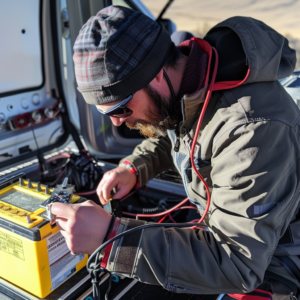
DIY vs. Pre-Made Kits
Building your own solar setup offers several advantages, including the potential for substantial cost savings and the ability to customize the system to your specific needs. However, it is important to consider that DIY solar installations require a significant amount of research, sourcing of parts, and wiring knowledge. This can be a challenging undertaking for beginners, as there is a higher risk of errors that could compromise the safety and performance of the system.
On the other hand, pre-packaged solar kits provide a more convenient and straightforward solution. These kits are designed to include all the necessary components, such as solar panels, inverters, batteries, and mounting hardware, that are compatible and work together seamlessly. Additionally, many pre-made kits come with helpful warranties that offer peace of mind and protection against any potential defects or malfunctions.
The decision of whether to go with a DIY or a pre-made kit depends on several factors:
- Comfort with Electrical Work: Consider your level of comfort and experience with electrical work. DIY solar installations require a solid understanding of electrical wiring and safety protocols. If you are not comfortable working with electricity, it may be safer and more efficient to opt for a pre-made kit.
- Flexibility vs. Convenience: Assess the importance of maximum flexibility in your solar setup. DIY installations allow for greater customization and the ability to choose specific components that meet your unique needs. Pre-made kits, on the other hand, offer a convenient, off-the-shelf solution with less customization options. Consider which approach aligns better with your preferences and requirements.
- Skill Level and Time Commitment: Evaluate your skill level and the time you are willing to invest in the project. DIY solar installations can be time-consuming and require a certain level of technical expertise. If you have limited time or lack the necessary skills, a pre-made kit may be a better option.
- Budget Considerations: Compare the costs of DIY and pre-made kits. While DIY installations have the potential for cost savings, it is important to factor in the cost of individual components, shipping, and any additional tools or materials you may need. Pre-made kits may come with a higher price tag, but they often include everything you need in one package.
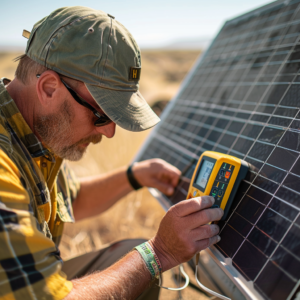
Having assessed these factors in detail, you can make an informed decision about whether to build your own solar setup or purchase a pre-made kit. Both options have their own advantages and disadvantages, and the best choice depends on your individual circumstances, preferences, and skill levels.
Popular Solar Kit Brands for Motorhomes
Selecting the right solar kit for your motorhome involves various considerations. The size of your RV, energy requirements, and budget play crucial roles. Several renowned solar kit brands are available, each offering distinct advantages and disadvantages.
One of the most trusted names in RV solar is Renogy. Renogy offers a wide range of solar kits to fit various needs and budgets. Their kits are well-made and come with everything you need to get started, including solar panels, a charge controller, and mounting hardware. Renogy also offers excellent customer service, so you can be sure that you’re getting the help you need if you have any questions or problems.
Another popular solar kit brand is Go Power!. Go Power! is known for its rugged systems, which are ideal for adventurous boondockers. Their kits are built to withstand the elements and are backed by a solid warranty. Go Power! also offers a wide range of solar panels, charge controllers, and mounting hardware, so you can customize your system to meet your specific needs.
If you’re looking for a portable solar kit, Zamp Solar is a great option. Zamp Solar offers several “suitcase-style” kits that are easy to set up and take down. They’re also relatively lightweight, so you can easily carry them with you wherever you go. Zamp Solar kits come with everything you need to get started, including solar panels, a charge controller, and a battery.
Here are some other reputable solar kit brands to consider:
- AIMS Power: AIMS Power offers a wide range of solar kits for RVs and other applications. Their kits are known for their high quality and competitive prices.
- HQST: HQST is a relatively new brand in the solar industry, but they’ve quickly gained a reputation for their high-quality solar panels and kits.
- Nature’s Generator: Nature’s Generator is known for its portable solar generators, which are ideal for camping and other outdoor activities.
- Solarland: Solarland is one of the largest solar panel manufacturers in the world. They offer a wide range of solar panels and kits for RVs and other applications.
- SunPower: SunPower is a leading manufacturer of high-efficiency solar panels. Their solar kits are known for their performance and durability.
To make an informed decision when choosing a solar kit for your RV, thorough research is crucial. Fortunately, there are many reputable solar kit brands in the market that cater to various needs and budgets, ensuring that you can find the ideal system for your requirements.
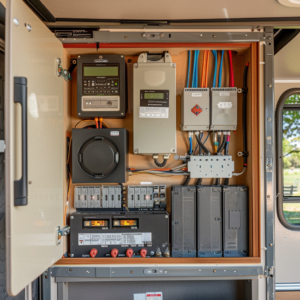
Installation Considerations
Secure roof mounting is often the ideal solution for a permanent solar panel installation. This might involve using special adhesives or even drilling if your roof can handle it. However, it’s crucial to prioritize electrical safety throughout the process. Make sure to follow proper wiring diagrams, use appropriate fuses, and wear protective gear such as gloves and safety glasses.
Don’t hesitate to seek assistance when needed. Online forums, guides on reputable solar websites, and even professional installers can provide valuable guidance, especially for the trickier parts of the installation process.
Here are some additional considerations for a successful solar panel installation:
- Roof Type: Different roof types (e.g., asphalt shingles, metal roofs, tile roofs) have varying requirements for mounting solar panels. It’s essential to assess your roof’s suitability and choose the appropriate mounting system.
- Roof Condition: The condition of your roof is also a critical factor. If your roof is old, damaged, or in need of repairs, it may not be able to support the weight of solar panels or withstand the potential stress caused by high winds or heavy snow.
- Sunlight Exposure: Analyze the sunlight exposure your property receives throughout the day. Consider factors like shading from trees or nearby buildings that could affect the performance of your solar panels.
- Local Regulations: Check local building codes and regulations regarding solar panel installations. Some areas may have specific requirements for mounting systems, setbacks from property lines, and other factors.
- Professional Help: If you lack the necessary skills, experience, or confidence to handle the installation yourself, don’t hesitate to hire a professional solar installer. A qualified installer can ensure a safe and efficient installation, maximizing the benefits of your solar energy system.
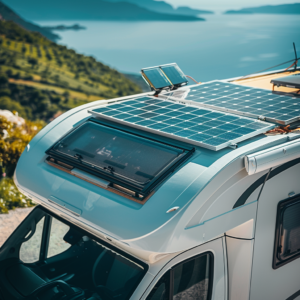
Conclusion
Embracing solar power for your motorhome is a game-changer for off-grid living and adventure seekers. It’s a practical investment that unlocks a whole new level of freedom and self-sufficiency while you’re on the road. By ditching the reliance on hookups, you’ll gain unparalleled flexibility and the ability to explore remote destinations without the constraints of traditional camping.
With a solar kit specifically designed for your motorhome, you’ll become your own energy provider, generating clean, renewable electricity directly from the sun. This means more time spent enjoying the great outdoors, off the beaten path, without the need to constantly seek out power hookups. Say goodbye to crowded RV parks and hello to the serene beauty of secluded campsites, national forests, and public lands.
Investing in a solar kit for your motorhome is an investment in your lifestyle. It allows you to extend your camping trips, stay disconnected from the grid for longer periods, and immerse yourself in the wonders of nature. Whether you’re a seasoned boondocker or just starting to explore the joys of off-grid living, solar power empowers you to go further, explore deeper, and create unforgettable memories in the great outdoors.
Imagine waking up to the gentle glow of the rising sun, brewing a fresh cup of coffee, and enjoying a tranquil breakfast while your solar panels silently generate the power you need for your daily comforts. No generators, no noise pollution, just the sound of nature and the freedom to roam wherever your spirit takes you.
So, if you’re ready to elevate your motorhome adventures, embrace the power of the sun and take your off-grid experience to the next level. With a solar kit, you’ll gain the independence, flexibility, and peace of mind that come with generating your own clean, renewable energy. It’s a sustainable choice that not only benefits the environment but also enriches your nomadic lifestyle, allowing you to truly immerse yourself in the beauty of the natural world.
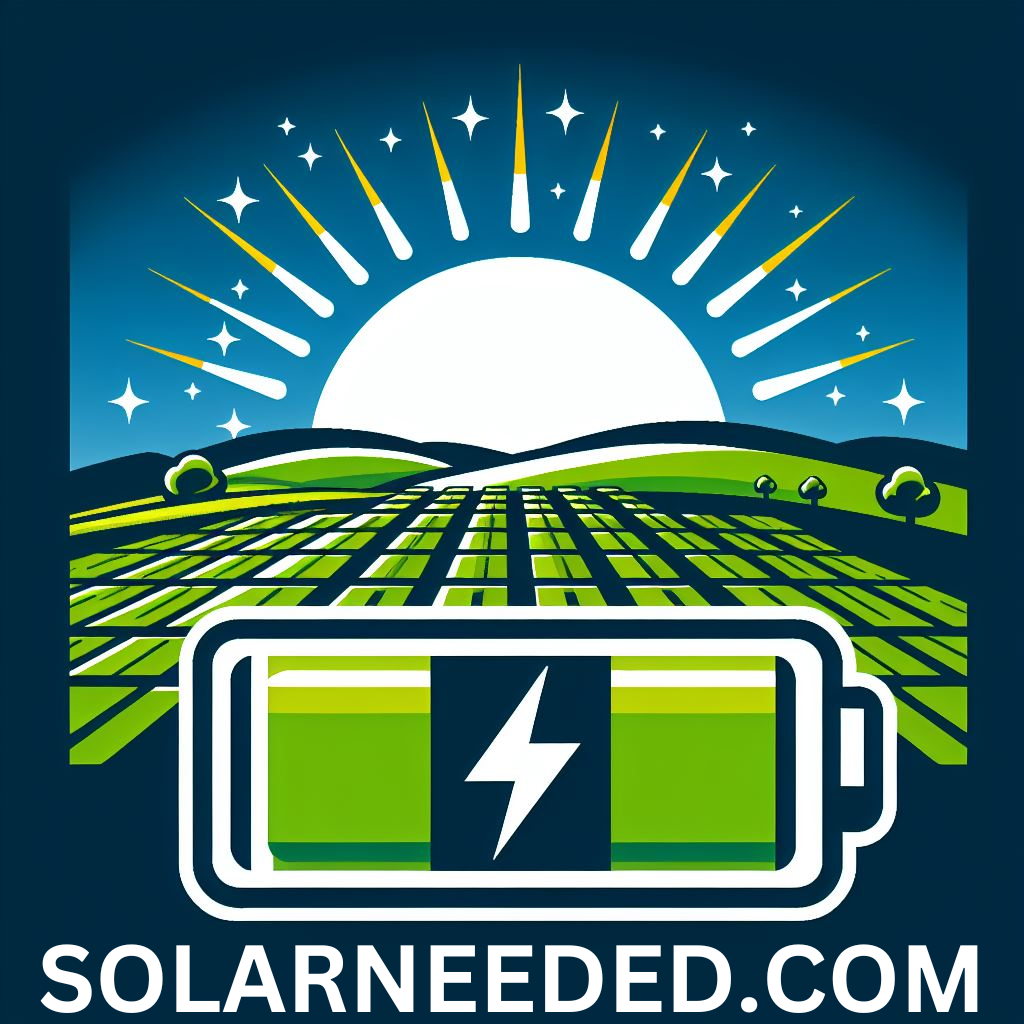
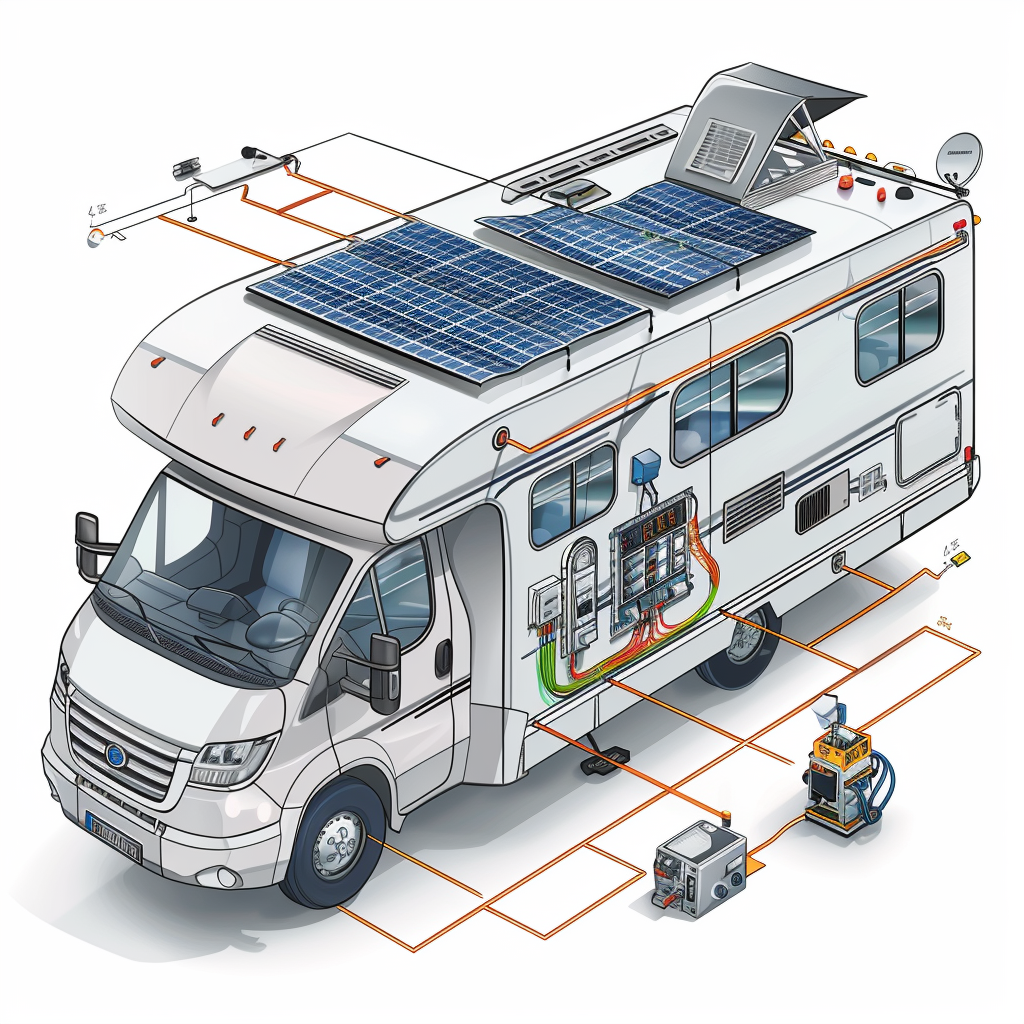
Leave a Reply